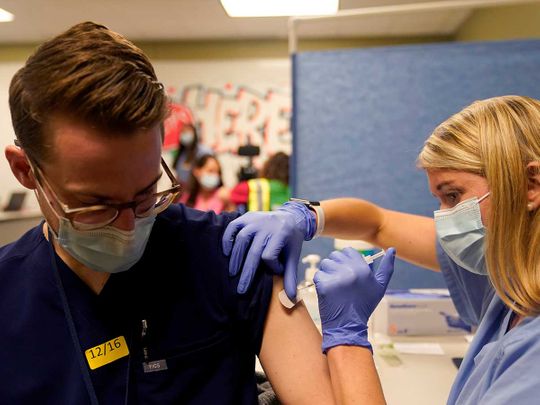
Washington: The Trump administration and Pfizer announced a deal Wednesday for the pharmaceutical company to provide an additional 100 million doses of its coronavirus vaccine by the end of July, easing a potential shortage.
The agreement, along with orders for another vaccine made by Moderna, means the United States has now secured commitments for enough doses to vaccinate all but about 60 million of the roughly 260 million adult Americans who are eligible to be inoculated.
Pfizer had agreed this summer, before its vaccine had even been proved effective, to provide an initial 100 million doses to the United States. Under the new agreement, Pfizer will provide an additional 70 million doses by the end of June and another 30 million by the end of July, doubling the deliveries it promised in the initial contract.
So far, Pfizer and Moderna, the only two producers whose vaccines have been approved for emergency distribution to Americans, together have pledged to ship 400 million doses in the next seven months. Both vaccines require two doses.
The US government will pay $1.95 billion for the second order, or $19.50 per dose, according to a statement from the company. Pfizer’s vaccine was developed with a German partner, BioNTech.
As part of the deal, the government agreed to invoke the Defence Production Act to help Pfizer get better access to around nine specialised products it needs to make the vaccine.
As early as September, Pfizer began asking for the government’s help in obtaining supplies, according to documents reviewed by The New York Times. At that time, the administration had already granted priority status to orders from Moderna and other companies that had been working with it more closely to develop their vaccines, putting Pfizer at a disadvantage.
A senior Trump administration official who spoke on the condition of anonymity in order to talk freely about internal discussions said the government was unwilling to intervene on Pfizer’s behalf earlier because the company refused to promise that it would use raw materials procured with the government’s help to produce vaccines solely for Americans.
A third vaccine maker, Johnson & Johnson, is expected to announce results from its clinical trials next month.








